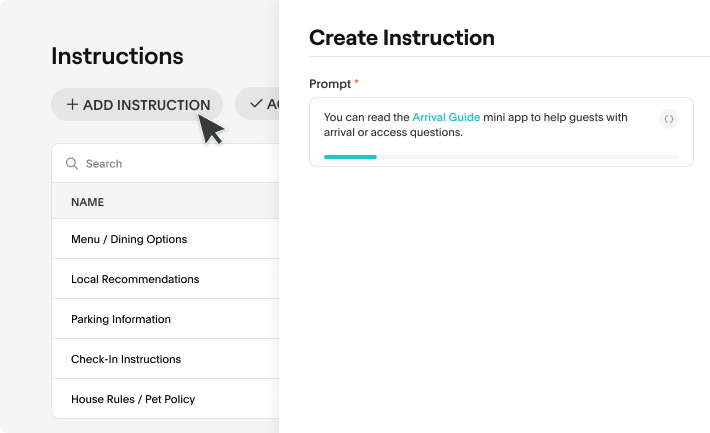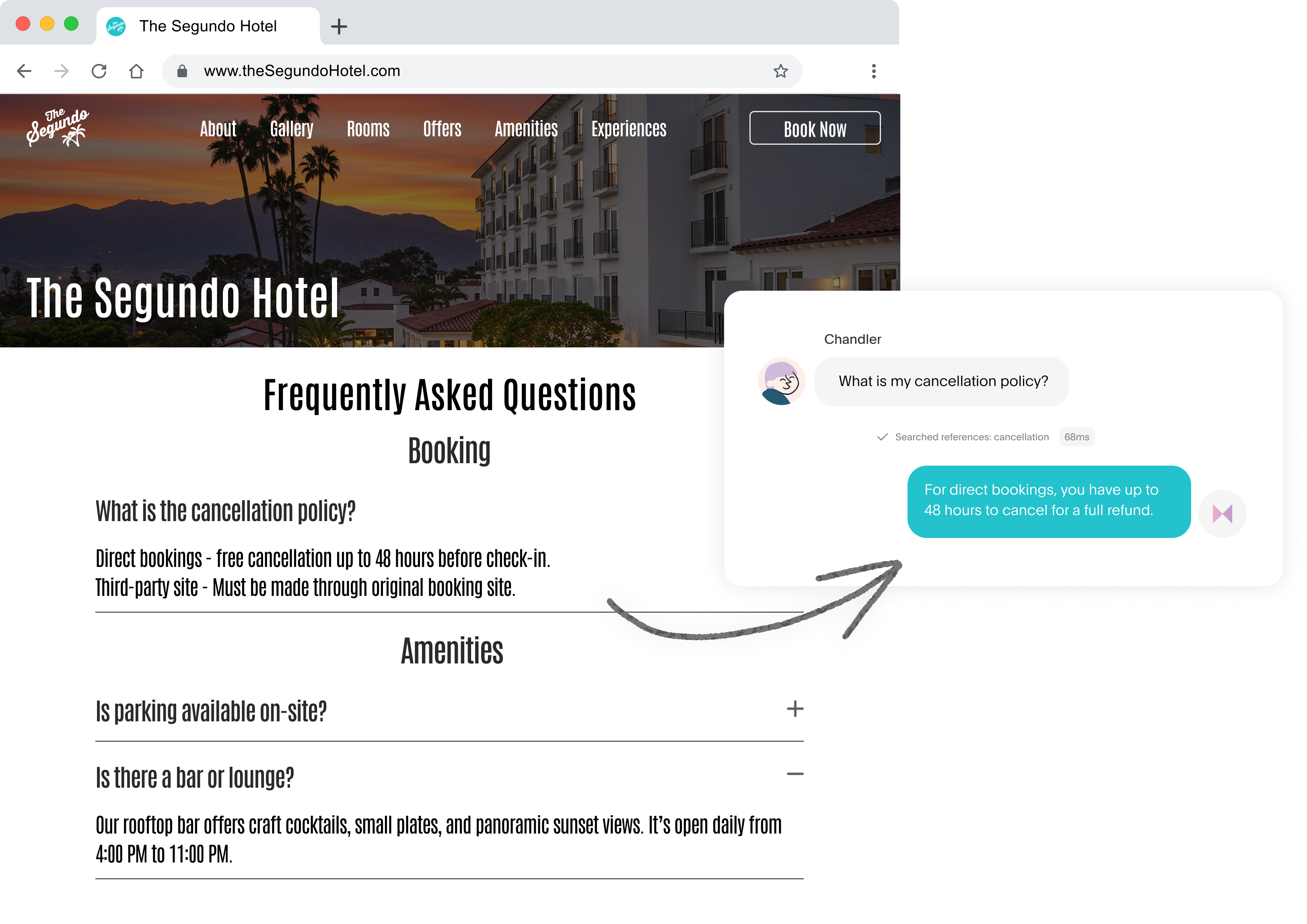What Travelers Are Expecting From Hotels Post-Pandemic
This past year has undoubtedly been difficult for everyone. In a time when there’s so much to be heavyhearted about, from COVID-19 deaths to job losses to the uprooting of everyday life, it can be difficult to stay optimistic for the future.
Although activities like dining out at restaurants, going to live concerts, and taking vacations are on the lower end of the priority list when trying to return to pre-pandemic times, these are the types of activities that many people look forward to the most. These activities give people something to be excited about, and that’s a feeling that a lot of people have been missing during these times.
Traveling to a new place is a wonderful experience. Traveling enables people to step outside of their comfort zones, try new things, and adapt to a new and different environment. It allows people to take a break from usual work routines, learn about new cultures, and share meaningful experiences with the people they care about the most. Travel is not essential; however, it is a happy experience that many people try to have whenever they get the chance to do so.
Of course, there is still uncertainty around what travel will look like in a post-pandemic world. While some are eager to travel as soon as possible, others are more hesitant. What places will be open? How crowded will those places be? Can you safely stay in a hotel?
Hotels have adapted their operations and introduced new safety procedures during the pandemic to keep guests and employees safe. During the pandemic, travelers could expect contactless service, heightened cleaning protocols, and time buffers between guest stays. Even in a post-pandemic world, some of these newer protocols may reasonably continue, out of precaution or even just for convenience. Here are some things that travelers are expecting from hotels after the pandemic.

Cleaning Protocols
Before COVID-19, people wouldn’t think twice about what surfaces they’ve touched, or how many people have slept in a hotel bed prior to their stay. Now, people are hyper-aware of the germs around them. Even after the pandemic ends, people are not going to easily forget all the information about how easily germs can spread and which surfaces spread those germs the most.
After the pandemic, hotels will likely need to keep some of the newer cleaning procedures that were put into place this past year. While they may not need to sanitize as frequently as they did during the pandemic, they may still need to keep some procedures, such as using more powerful cleaning products to kill bacteria and maintaining enhanced laundry practices. During the hotel experience, guests want to feel comfortable and at ease, so hotels should do their best to meet that standard.
To maintain cleanliness, hotels can adopt guest messaging to remove commonly touched devices, such as in-room phones and check-in kiosks. Since most people prefer to communicate via their own mobile devices, adopting guest messaging allows hotels to cut down surfaces that are touched by many different people.
To further keep processes digital, hotels can also adopt digital compendiums as an alternative to physical hotel marketing brochures. Digital compendiums allow for a mobile-friendly and interactive experience, and they cut down another physical surface that can be commonly touched.

Mask Mandates
Unfortunately, the pandemic will not immediately end once the majority of people get vaccinated. Masks and social distancing are still recommended, even after getting vaccinated due to limited information about whether the new vaccines can fully stop the spread of the virus.
Because of that, it’s very likely that hotels will still need to require guests to wear masks while they’re in common spaces, such as lobbies or hallways. Even with proof of vaccination, hotels will need to take extra precautions to ensure that their guests and employees are safe while on the property.
Having mask requirements while on property will also help hotels to reassure guests that their stay will be safe. Since confidence in traveling has declined as much as it has during the pandemic, hotels will need to do their best to build that trust with their guests again.

Contactless Check-in
If hotels haven’t implemented contactless check-ins yet, they are falling behind. Contactless check-ins have become a common part of the hotel stay during COVID-19. Online registrations streamline the overall check-in process, and guests can avoid contact at the front desk. Rather than waiting in line and completing the whole check-in process upon arrival, contactless check-ins have allowed guests to go straight to their rooms or simply grab their room key at the front desk.
Once it’s safe for widespread travel again, new processes like contactless check-ins would no longer be a necessary part of a hotel stay, as there is less of a health risk around face-to-face interactions at the front desk. However, digital registration will probably continue forward with the hotel industry, since this innovative process has enabled greater convenience for guests, alongside its contactless benefits.
Online registration cuts down the time spent on check-in significantly, and when guests are weary from traveling, they want to get to their hotel rooms as quickly as possible. And when there is a long line of people waiting to check in, in-person registration can take a relatively long time.
After getting accustomed to quick and streamlined digital registration processes, travelers will likely become more frustrated with longer wait times and slower processes. As technology advances and expectations change, the hospitality industry will need to evolve with it to meet new demands.

Contactless Dining
One of the greatest appeals of delivery services is that they offer a very convenient dining experience. When people simply want to stay in for dinner or don’t feel like cooking, they can easily order food from an app and get it sent straight to them. There is very little effort on the consumer’s part, except the willingness to spend a little extra money to have this type of service.
During the pandemic, delivery services boomed as in-person dining became unsafe. While guests can surely get food delivered to their hotels from external restaurants, hotel restaurants can also implement and continue their own contactless dining experiences. As people grow more accustomed to this type of service, hotels can follow suit and offer their own version of a delivery service.
In Conclusion
The hotel and travel industry has changed significantly during the past year. They’ve adapted as much as they can to offer safe experiences. Although widespread travel will not be the first thing to return after the pandemic subsides, it will eventually return as people eagerly seek to go out into the world. And once they do, travelers will face a very different world of hospitality than the one they knew before the pandemic.
Time is one the greatest asset and one of the things that [Akia] has helped us out as a property tremendously.
Wanny M.
Marketing Associate
Time is one the greatest asset and one of the things that [Akia] has helped us out as a property tremendously.
Ethan Fishbane
Director of The Front Office, Prince Waikiki
Schedule of events and useful links
Never miss a beat with our comprehensive schedule of events and collection of useful links.

Schedule of events and useful links
Never miss a beat with our comprehensive schedule of events and collection of useful links.

See Akia in action!
Schedule a demo today and learn how our hospitality platform can transform your operations and elevate your guest experience.














